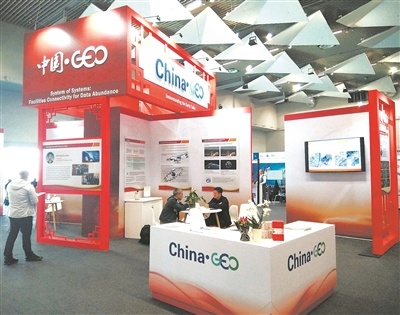
At the Group on Earth Observations (GEO) Week 2023 held in Cape Town, South Africa, from November 6-10, on the theme “The Earth Talks”, China took over the Lead Co-chair for 2024 to preside over next year's work.
China will continue to promote GEO’s key work in 2024, including drafting the implementation plan of GEO's Post 2025 Strategy, implementing the 2023-2025 Work Programme, strengthening the participation of developing countries, and bridging the widening digital divide between developed and developing countries.
In his keynote speech at the GEO Week 2023 Ministerial Summit, Zhang Guangjun, vice minister of China’s Ministry of Science and Technology and GEO co-chair, spoke on narrowing the digital divide between the Global North and South by sharing China’s endeavors and achievements in Earth observation. He called on the GEO community and its partners to work together to create an open, inclusive, equitable and non-discriminatory Earth observation landscape and sound digital economy environment.
Zhang said GEO should promote the connectivity of Earth observation infrastructure, ensure the smooth flow of geo-spatial information and promote synergy of development philosophies among all parties holding fast to inclusiveness and mutual learning. He also encouraged GEO to enhance people-to-people exchanges among countries and all stakeholders, and jointly promote stronger, greener and healthier global development.
Chinese experts gave details about China’s latest research achievements in Earth observation, and shared remote sensing datasets for global ecological environment monitoring. The data is expected to provide decision-making references for sustainable development of the Asia-Oceania region and the international community.
Eleven ministerial representatives attended GEO Week and nearly 1,000 representatives from the United States, the European Commission, South Africa, the GEO Secretariat as well as other GEO members, participating organizations and associates took part in the activities during the week.
The trio will conduct a series of experiments in fields such as life science, fluid physics, combustion science and materials science. Notably, this is the first time that fruit flies have been taken on a Chinese space mission as experimental subjects. What made scientists choose fruit flies? What experiment will they undergo?
